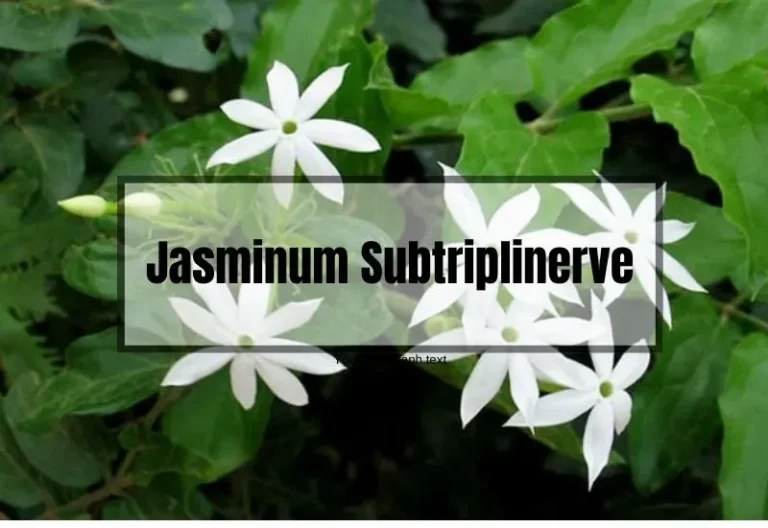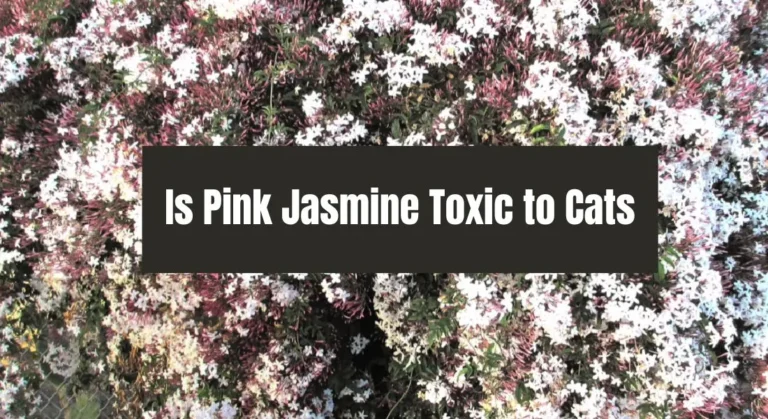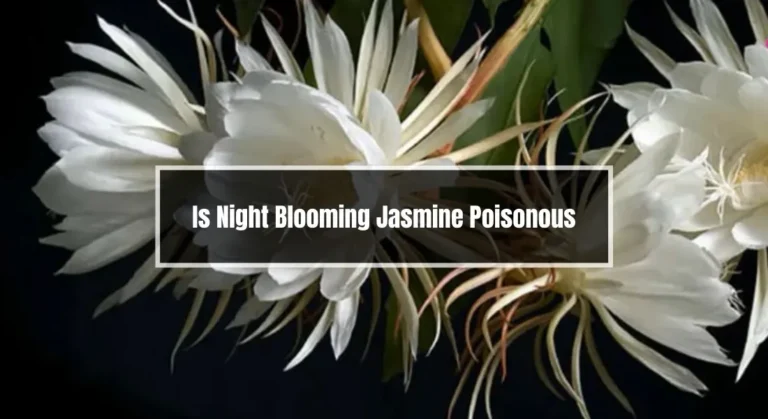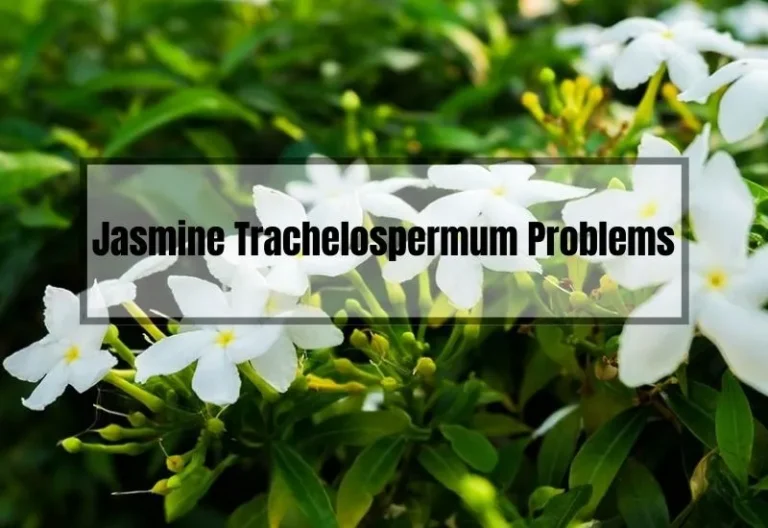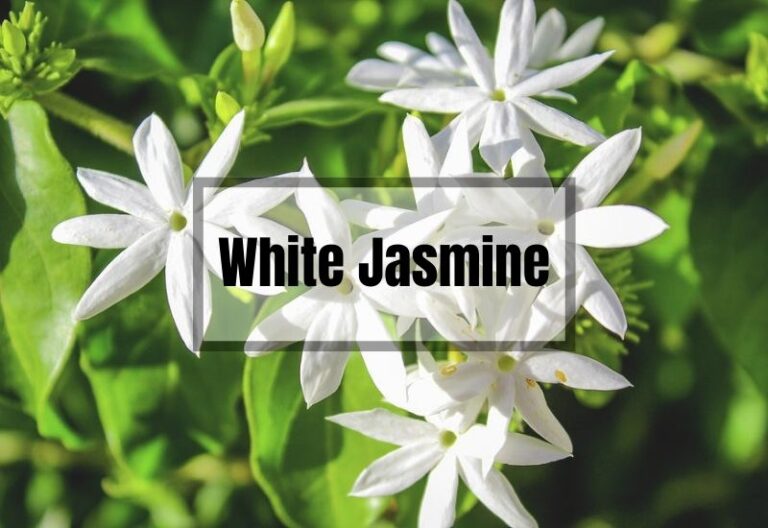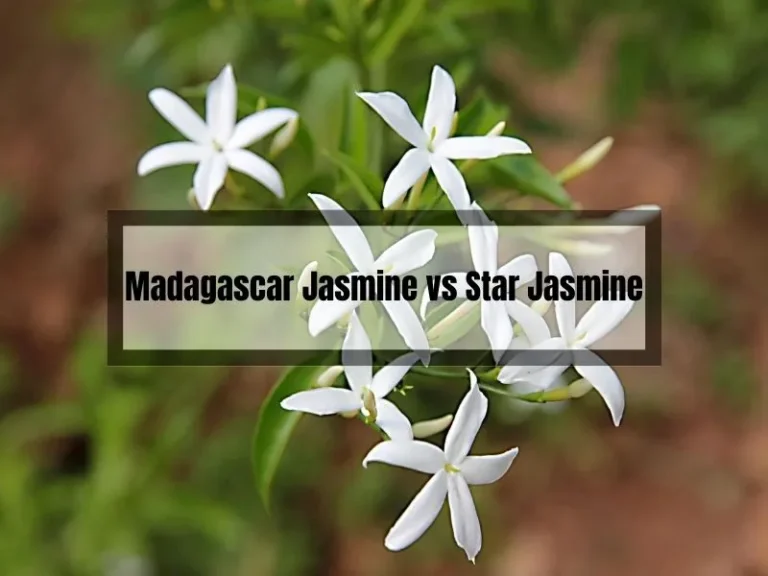Is Tomato Feed Good for Jasmine Plants? Discover the Expert Tips
Tomato feed is a popular fertilizer used by many gardeners to enhance plant growth and fruit production. However, when it comes to using tomato feed for jasmine plants, the answer is a bit nuanced.
Tomato feed does contain essential nutrients that jasmine plants need, but it’s important to note that jasmine has different growing requirements compared to tomatoes. Jasmine prefers slightly acidic soil and has a lower salt tolerance. While tomato feed may supply some necessary nutrients, it might not be the ideal choice.
If you’re exploring alternative fertilizers for your jasmine plants, consider options like organic fertilizers such as compost or manure, which provide slow-release nutrients. Water-soluble fertilizers like Miracle-Gro Rose Plant Food can also provide a quick nutrient boost. Always read and follow the instructions when using any fertilizer on your jasmine plants.
- Tomato feed may not be the best fertilizer option for jasmine plants due to their different growing requirements.
- Organic fertilizers, such as compost or manure, and water-soluble fertilizers, such as Miracle-Gro Rose Plant Food, can be good alternatives for jasmine plants.
- Always read the label and follow instructions carefully when using any fertilizer on your jasmine plants.
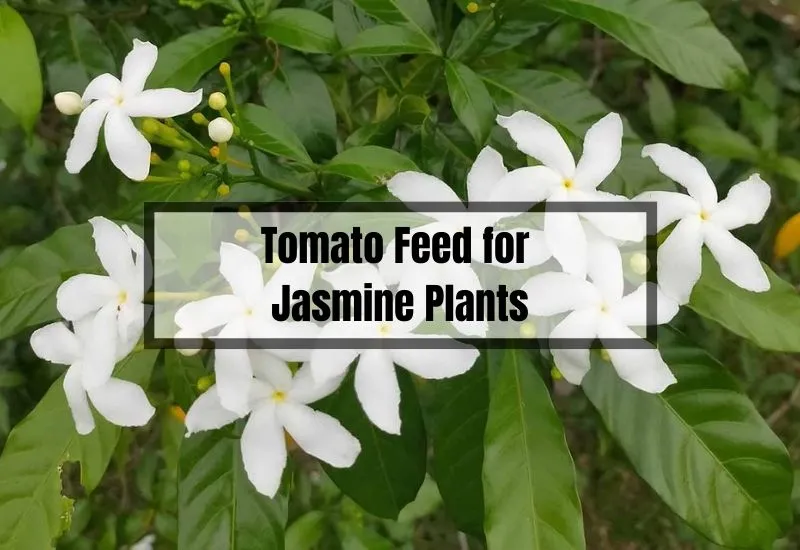
Is Tomato Feed Good for Jasmine?
If you’re looking for a way to give your jasmine plants a nutrient boost, you might be wondering if tomato feed is a good option. Tomato feed is a fertilizer that is designed to help tomato plants grow and thrive, but can it also benefit jasmine plants?
The answer is yes, you can use tomato feed for jasmine plants, but it’s important to keep a few things in mind. First, tomato feed is generally formulated for plants that have different growing requirements than jasmine. Jasmine plants prefer a slightly more acidic soil than tomatoes and have a lower tolerance for salt.
That being said, tomato feed can still provide jasmine plants with the nutrients they need to grow and flourish. Tomato feed is high in potassium, which is essential for plant growth and helps to promote strong roots and healthy foliage. It also contains phosphorus, which helps plants to develop strong stems and flowers.
When using tomato feed on jasmine plants, it’s important to dilute it according to the manufacturer’s instructions. Using too much fertilizer can actually harm your plants, so be sure to follow the recommended application rates.
Another thing to keep in mind is that tomato feed should not be used as the sole source of nutrients for your jasmine plants. While it can provide a nutrient boost, it’s important to also use other fertilizers and soil amendments to ensure that your plants are getting all of the nutrients they need to thrive.
Effects of Tomato Feed on Jasmine
Jasmine plants are known for their sweet fragrance and beautiful blooms, making them a popular choice among gardeners. If you’re looking for a way to keep your jasmine plants healthy and thriving, you may be wondering if tomato feed is a good option.
Tomato feed is a type of fertilizer that is specifically designed for tomato plants, but it can also be used on other plants, including jasmine. Here are some of the effects that tomato feed can have on your jasmine plants:
- Promotes growth: Tomato feed contains high levels of nitrogen, which is essential for plant growth. Nitrogen helps to promote healthy foliage and encourages the development of new shoots and branches.
- Increases flowering: Jasmine plants require phosphorus to produce flowers, and tomato feed contains a good amount of this nutrient. Regular application of tomato feed can help your jasmine plants produce more blooms.
- Improves soil quality: Tomato feed contains a range of micronutrients that can help to improve the overall quality of your soil. This can lead to healthier plants and better yields.
When using tomato feed on your jasmine plants, it’s important to follow the instructions carefully. Over-fertilization can lead to burned roots and stunted growth, so be sure to apply the fertilizer sparingly.
In general, tomato feed can be a great option for jasmine plants, but it’s important to remember that every plant is different. If you notice any negative effects after using tomato feed, such as yellowing leaves or stunted growth, you may need to adjust your fertilization routine or try a different type of fertilizer.
Overall, tomato feed can be a valuable tool in keeping your jasmine plants healthy and beautiful. Just be sure to use it responsibly and monitor your plants closely for any signs of stress or damage.
What are the Nutritional Needs of Jasmine Plants?
Jasmine plants require a balanced blend of macronutrients and micronutrients to grow and thrive. In particular, they need nitrogen, phosphorus, and potassium, as well as smaller amounts of calcium, magnesium, iron, and other trace minerals.
When choosing a fertilizer for jasmine plants, it’s important to select one that provides these nutrients in the right proportions. A fertilizer that’s too high in one nutrient and too low in others can cause imbalances that can harm your plant.
What are the Benefits and Drawbacks of Using Organic vs. Synthetic Fertilizers?
Organic fertilizers are made from natural materials like compost, manure, and bone meal. They’re generally slower-acting than synthetic fertilizers, but they provide a wide range of nutrients that can benefit your plants over time. Additionally, organic fertilizers can improve soil health and fertility, which can have long-term benefits for your garden.
Synthetic fertilizers, on the other hand, are made from chemical compounds that are designed to provide specific nutrients in specific amounts. They’re generally faster-acting than organic fertilizers, but they don’t provide the same range of nutrients or soil-building benefits.
When it comes to jasmine plants, either type of fertilizer can work well. However, some gardeners prefer organic fertilizers because they’re less likely to harm beneficial soil organisms and are generally safer for the environment.
How to Use Tomato Feed for Jasmine Plants
If you do decide to use tomato feed for jasmine plants, here are a few things you should keep in mind:
- Use tomato feed sparingly. Jasmine plants don’t need as much fertilizer as tomatoes, so use a diluted solution and apply it every 2-3 weeks during the growing season.
- Water your plant before applying the feed to avoid burning the roots.
- Apply the feed to the soil around the base of the plant, not on the leaves or flowers.
- Rinse the soil with plain water after fertilizing to help prevent salt buildup.
Alternative Fertilizers for Jasmine
While tomato feed can provide jasmine plants with the nutrients they need, there are other fertilizers available that can also promote healthy growth and beautiful blooms. Here are some alternative fertilizers for jasmine:
- Organic Fertilizers: Organic fertilizers, such as compost, manure, and bone meal, are great options for jasmine plants. They provide slow-release nutrients and improve soil quality, which can help the plant grow strong and healthy. Additionally, organic fertilizers are environmentally friendly and safe for pets and children.
- Liquid Fertilizers: Liquid fertilizers, such as fish emulsion and seaweed extract, are easy to apply and quickly absorbed by the plant. They can provide an instant boost of nutrients and promote healthy growth and flowering. However, they need to be applied more frequently than other fertilizers.
- Slow-Release Fertilizers: Slow-release fertilizers, such as granular or pelletized fertilizers, provide a steady supply of nutrients over a longer period of time. They are convenient and easy to apply, and can be effective for up to several months. However, they can be more expensive than other fertilizers.
When choosing a fertilizer for your jasmine plant, it’s important to consider its specific needs and growing conditions.
For example, if your jasmine plant is in a container, it may need more frequent fertilization than one planted in the ground. Additionally, you should always follow the manufacturer’s instructions and avoid over-fertilizing, which can damage the plant.
Common Mistakes to Avoid When Fertilizing Jasmine Plants
When fertilizing jasmine plants (or any plant, really), there are a few common mistakes that can cause problems. Here are a few things to watch out for:
- Over-fertilizing: Too much fertilizer can burn the roots of your plant and cause leaf drop or other issues.
- Under-fertilizing: Jasmine plants do need some fertilizer to grow and flower, so don’t neglect this important step.
- Using the wrong type of fertilizer: Make sure you’re using a fertilizer that’s appropriate for your plant’s needs.
- Applying fertilizer too close to the stem: This can cause root burn and other issues.
Expert Tips on Jasmine Plant Care
Jasmine plants are a beautiful addition to any garden or home. They are known for their fragrant flowers and are relatively easy to care for. Here are some expert tips on how to take care of your jasmine plant:
Watering
Jasmine plants need to be watered regularly, especially during the growing season. Make sure to water your jasmine plant deeply, so the water reaches the roots. However, be careful not to overwater your plant as it can lead to root rot.
A good rule of thumb is to water your jasmine plant once a week and increase the frequency during the hot summer months.
Fertilizing
Jasmine plants need to be fertilized regularly to ensure healthy growth and blooming. Use a slow-release fertilizer or a liquid fertilizer diluted to half strength every two to three weeks during the growing season. Be sure to choose a fertilizer that is high in phosphorus, as this will promote blooming.
Pruning
Regular pruning is essential for maintaining the shape and size of your jasmine plant. Prune your plant in the early spring before new growth appears. Remove any dead or damaged branches and cut back any overgrown stems. This will encourage new growth and promote blooming.
Sunlight
Jasmine plants need plenty of sunlight to thrive. They prefer full sun but can also grow in partial shade. Make sure to place your jasmine plant in a location that receives at least six hours of sunlight a day.
Soil
Jasmine plants prefer well-draining soil that is rich in organic matter. Make sure to plant your jasmine plant in soil that is moist but not waterlogged.
By following these expert tips, you can ensure that your jasmine plant stays healthy and beautiful all year round.
Frequently Asked Questions (FAQs)
Here are some frequently asked questions about using tomato feed for jasmine plants:
Can I use tomato feed on other types of plants?
Yes, you can use tomato feed on other fruiting or flowering plants that have similar nutrient needs to tomatoes.
How often should I fertilize my jasmine plant?
Jasmine plants don’t need frequent fertilization, so once every 2-3 weeks during the growing season should be sufficient.
Is it safe to use tomato feed around pets or children?
Tomato feed can be toxic if ingested in large quantities, so keep it away from pets and children. Make sure to wash your hands after handling it, too.
Conclusion
So, is tomato feed good for jasmine plants? The answer is…maybe. While tomato feed can provide some of the nutrients that jasmine plants need to grow and flower, it’s not a perfect solution. Jasmine plants have different growing requirements than tomatoes, so using a fertilizer that’s specifically formulated for jasmine might be a better choice.
Regardless of what fertilizer you choose, be sure to follow the instructions carefully and avoid common mistakes like over-fertilizing or applying fertilizer too close to the stem. With a little care and attention, your jasmine plant can thrive and fill your home with its beautiful fragrance. Happy gardening!
Related Posts:
- Does Arabian Jasmine Attract Snakes? What You Need to Know
- Is Your Star Jasmine in Trouble? Here’s Why the Leaves Are Turning Red
- Madagascar Jasmine vs Star Jasmine: The Ultimate Comparison
- Jasmine Nightshade vs Star Jasmine: Unraveling the Differences
- Will Roundup Kill Star Jasmine? The Effects and Alternatives

